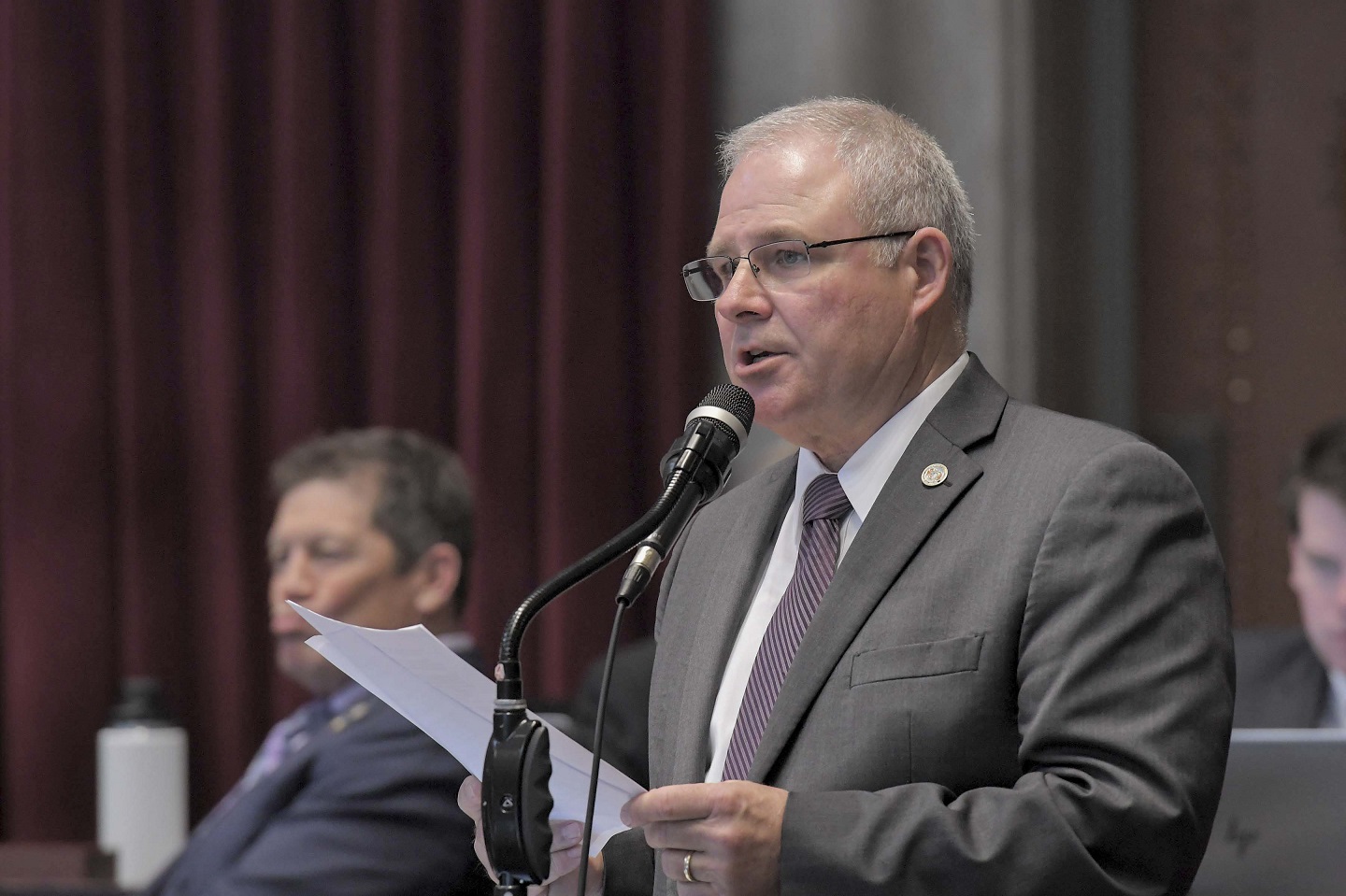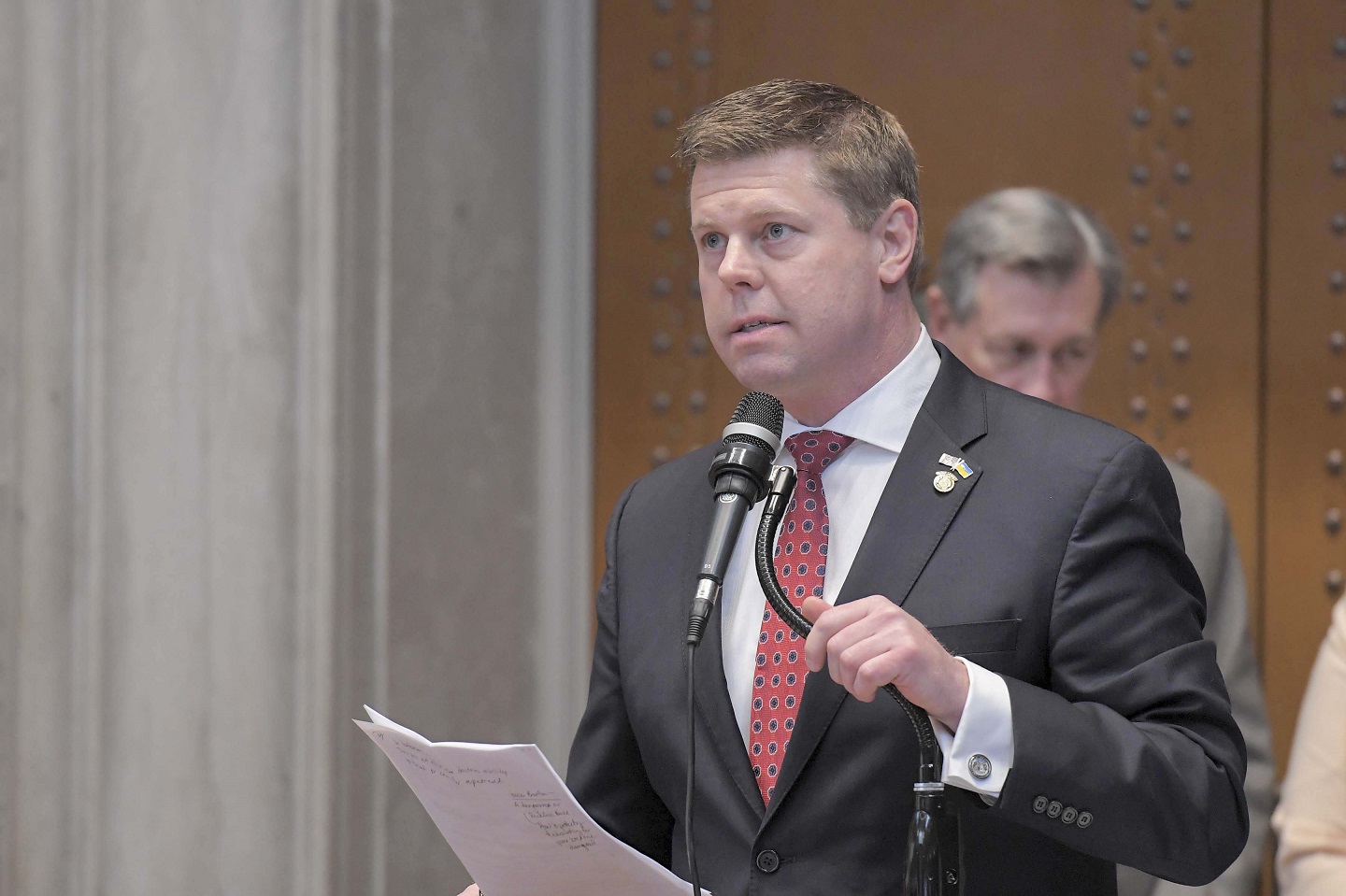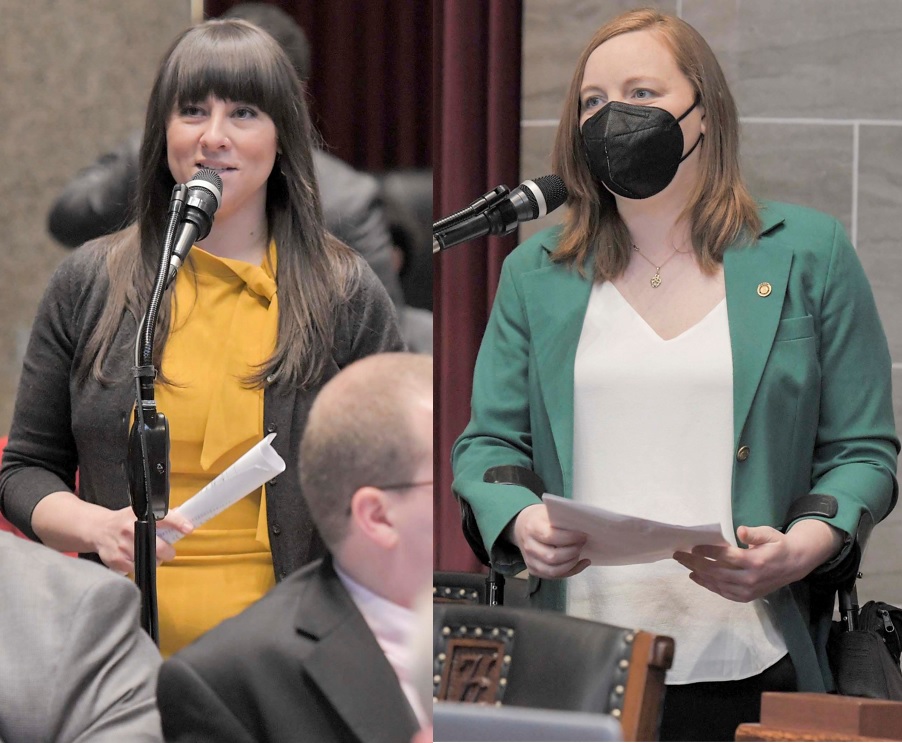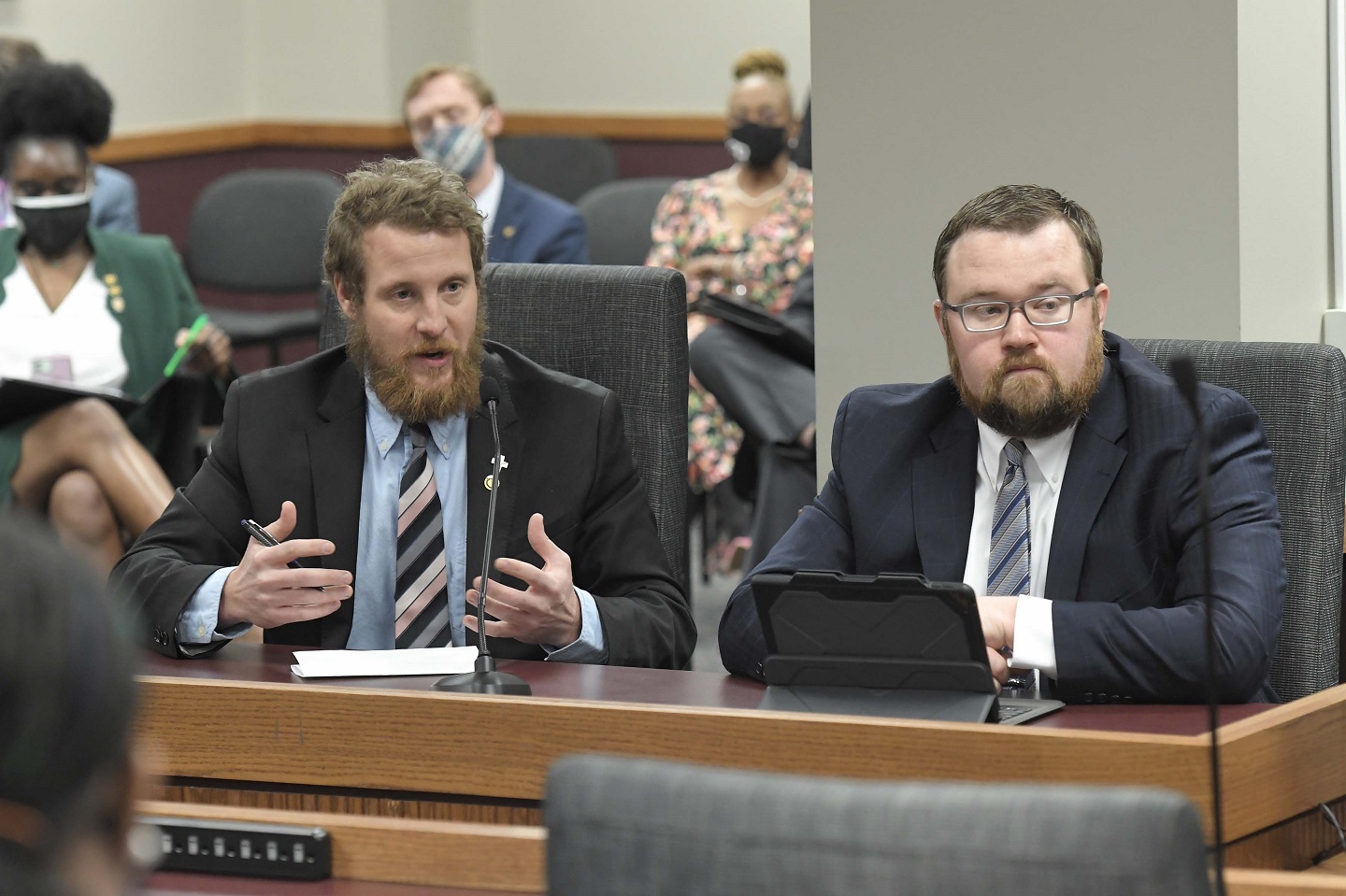The House has approved the easing of restrictions on visitors in hospitals and nursing homes such as those experienced during the COVID-19 pandemic.

Representatives who backed the proposal cited instances of Missourians going for days or more and even dying without loved ones being allowed to see them. Opponents said it should be up to facilities how best to place restrictions for the good of patients and residents.
Called the “No Patient Left Alone Act,” House Bill 2116 was the combination of four pieces of legislation. The sponsor of HB 2116 is Chillicothe Republican Rusty Black.
The plan drew an impassioned speech from Majority Floor Leader Dean Plocher (R-St. Louis) who spoke about his late father-in-law’s stay in a hospital that lasted more than 20 days, during most of which he was not allowed visitors. Plocher said for much of this his family was not updated on his condition; his call light was not answered, and they were denied an explanation on the administering of unusual medications. He complained of improper care and was at one point found to have a fork embedded in his skin and to be suffering from mouth sores.
He said what happened to his father-in-law in the days before his death was not unique.

“Health care facilities were allowed to arbitrarily set rules for visitation all while staff could come and go on a daily basis, and I guess they could, in fact, bring in viruses too. Health care facilities essentially became prisons for our loved ones. People were admitted. One day you could have visitors, the next day you couldn’t. People were confined without access to an advocate from those that knew them. It was arbitrary and there was no recourse if you were locked away by a health care facility without access to visitors,” said Plocher. “This bill protects all Missourians and all of our loved ones. This bill is necessary and should be a right for of those receiving care, to have a visitor and an advocate by their side.”
Several Republicans called the legislation perhaps the most important bill they could handle this year.
“I truly believe that this bill will prevent a loss of life in many situations,” said Neosho representative Ben Baker (R), who chaired the committee that handled HB 2116. “When you are in that situation where you have no one to turn to, no one that you know, no one that you have that personal relationship with, it’s extremely important for the mental well-being, the physical well-being of those patients in those situations to have that. I can’t imagine what it would be like if I was in that situation where I had no one to advocate for me.”
Some Democrats spoke against the measure saying health care facilities should be able to determine what practices are the safest for their staff and those in their care, particularly during a pandemic.
“We all have rights and we all have freedoms and while your loved one is potentially needing support in one room, somebody else’s loved one is down the hall and they don’t need to be exposed to whatever it is that folks are bringing into that care facility,” said Representative Ashley Aune (D-Kansas City).

“I can respect this is a horrible situation. It was a horrible situation we were put in. No one wants to keep family members from their loved ones in the hospital when they are sick. No one wants to do that, but a lot of times it’s what has to be done,” said Representative Bridget Walsh Moore.
“We all have high emotions about not being able to be with our loved ones at the end of their life , but I’m wondering if the policy, the legislation … takes the work and takes the authority, really, away from the people who are closest to the situation, working with their patients, to make a determination as to how safe, or not, it is for others to come in when people are sick,” said Representative Yolanda Young (D-Kansas City).
Republicans maintained that they worked with health care industry representatives in creating a bill that would answer their concerns while not jeopardizing safety in health care facilities.
“It’s done in a very prudent way. It does not open up visitation in a free-for-all manner. It’s thoughtful to where there’s only a handful of people that can get in off of a list and only a couple at a time, the facility can screen those folks, and so we can have the best of both worlds. We can have the safety that’s required but we can also have those visitation rights that is so important to the folks who need us to come in to hold their hand, to be with them, to help them with their mental health and physical health by being there for them in person,” said Representative J. Eggleston (R-Maysville).
The bill specifies that a patient’s list of visitors would include a spouse, or parents or guardians in the case of a child. Facilities could still deny access to patients under specified circumstances including at the request of the patient or law enforcement; when a person has signs and symptoms of a transmissible infection; or when the attending physician believes the presence of visitors would be detrimental to the patient. The bill’s provisions do not grant visitors access to restricted areas like operating rooms or behavioral health units.
The House voted 120-27 to send the bill to the Senate.

